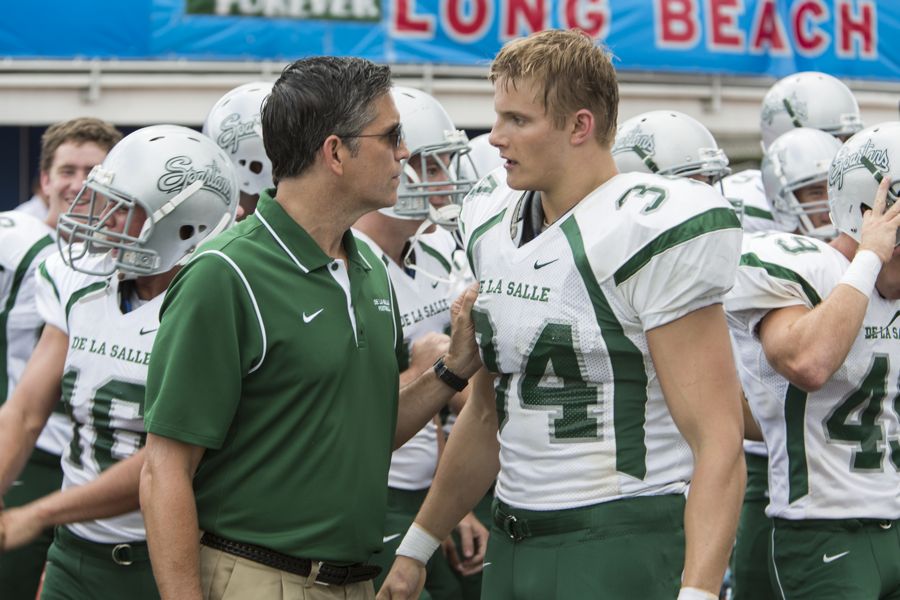
When the Game Stands Tall is less a film and more a motivational video they might show at a Christian sports camp.
Watching it, I kept waiting for its point to reveal itself, for the “extraordinary true story” it was based on to come to the fore.
I’m still waiting.
It tells the story of the De La Salle High School Spartans football team which shattered all national records by winning 151 games in a row. Then they lost a game, partly because the young men on the team took the streak for granted, got cocky, and stopped playing for each other. Subsequently, the boys were taught to care about teamwork and each other more than the streak. And well…that’s it.
Okay, that flimsy and familiar premise might’ve worked if When the Game Stands Tall was also a probing character study of the team’s coach Bob Ladouceur (a forgettable Jim Caviezel). But in the film, Ladouceur is barely a character at all—just a series of platitudes about football, God (he teaches bible study at the school), brotherhood, and striving for perfection. The worst thing one can say about Ladouceur is that he cares too much—so much so that he has a heart attack from stress and overwork. This is particularly upsetting to his put-upon (but devoted, natch) wife (Laura Dern) and his football-playing son (Matthew Daddario). His younger son has zero lines of dialogue and, hilariously, is always seen clutching a trumpet.
Early in the film, we meet two outgoing seniors, T.K. (Stephan James) and Cam (Ser’Darius Blain.) They are from the inner city—we know this because every time their neighborhood is shown hip hop music blares on the soundtrack (I wish I were joking). Cam feels that he’s cursed—he’s lost most of his loved ones to violent crime, but he and T.K. are like brothers and decide to attend the University of Oregon together, both on football scholarships. Then, tragically, T.K. finds himself in the wrong place at the wrong time and is murdered.
Again, I expected this to be a turning point in the film. Would Coach Ladouceur take the devastated Cam into his home? Would he use T.K’s death as a way to inspire the team, highlight the fragility of life? Nope. He merely gives Cam the advice to stick to his plan and go Oregon. That’s the extent of his parental wisdom. Later, Coach Ladouceur does inspire his team, not by having an honest discussion of T.K.’s death, but by taking them to a VA hospital.
The young men on the team are a predictably bland bunch—we’ve got the cocky wide receiver/safety played by Jessie Usher. We have the fat, cheerful, virgin offensive lineman played by Joe Bassingill. We have the team’s stud runningback (Alexander Ludwig), who has the kind of abusive father who lives vicariously through his son’s on-field heroics. We have the aforementioned coach’s son, just looking for an attaboy from his dad.
In other words, a veritable scrum of clichés.
The film gets bumped half a star because the on-field action is well staged—and by far the best part of the film.
Hey, if I were Bob Ladouceur, or a member of his family, I would be thrilled with this film. It basically plays like a paean to his greatness (not only does he have a unique gift for bringing out the best in young men, he’s a tactical football genius to boot!). I can also imagine that some young athletes, especially those who haven’t seen the many sports films and TV shows that When the Game Stands Tall feels like a pale imitation of, might find it inspirational. Why the rest of us are supposed to care is never quite made clear.
